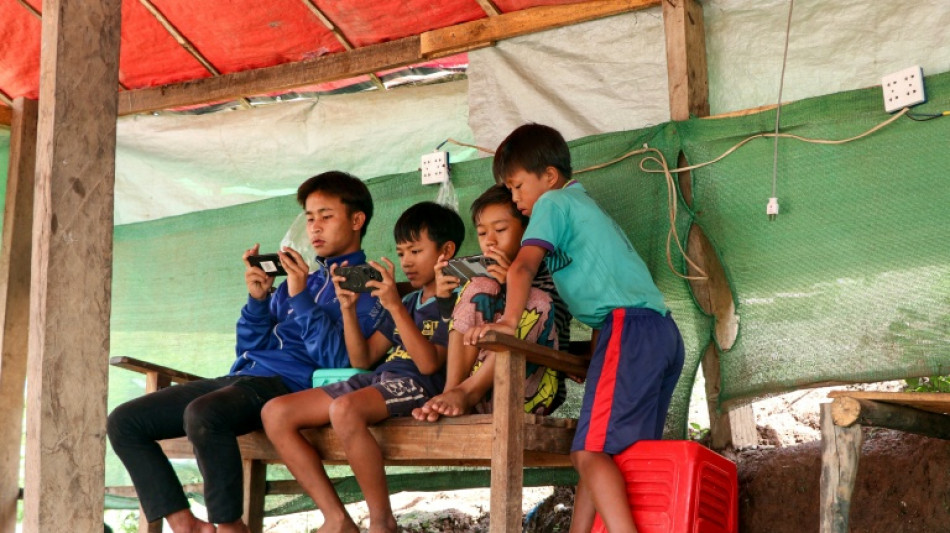
-
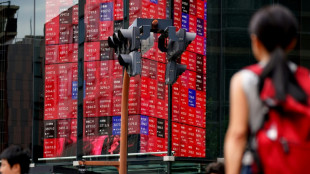 Markets waver as Japan exports show tariff strain
Markets waver as Japan exports show tariff strain
-
Afghanistan bus crash death toll rises to 78
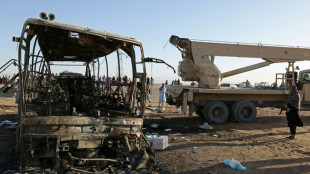
-
 Historic Swedish church inches closer to new home
Historic Swedish church inches closer to new home
-
Asian markets waver as Japan exports show tariff strain
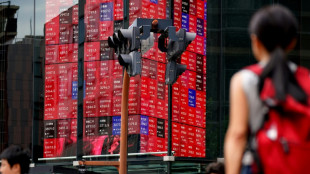
-
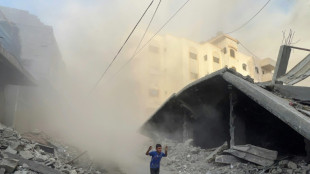 Israel defence minister approves plan to conquer Gaza City
Israel defence minister approves plan to conquer Gaza City
-
More than 20 dead in fresh Pakistan monsoon rains
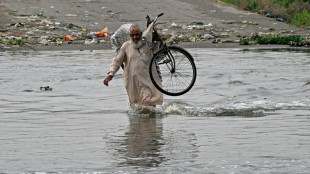
-
 Brazilian goalkeeper Fabio claims world record for most games
Brazilian goalkeeper Fabio claims world record for most games
-
Vienna chosen to host Eurovision 2026

-
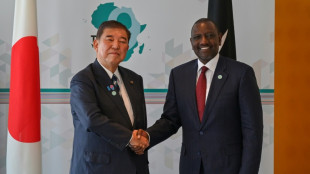 Japan hosts African leaders for development conference
Japan hosts African leaders for development conference
-
Reclusive Turkmenistan bids to go tobacco-free in 2025

-
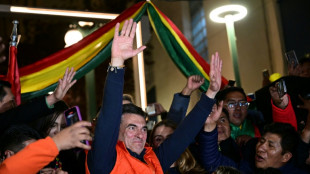 From TikTok to frontrunner, inside Paz's presidential campaign in Bolivia
From TikTok to frontrunner, inside Paz's presidential campaign in Bolivia
-
Chinese mega-hit 'Ne Zha II' enlists Michelle Yeoh to woo US audiences

-
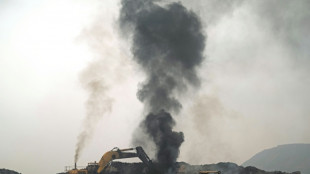 India celebrates clean energy milestone but coal still king
India celebrates clean energy milestone but coal still king
-
US demand for RVs fuels deforestation on Indonesia's Borneo: NGOs
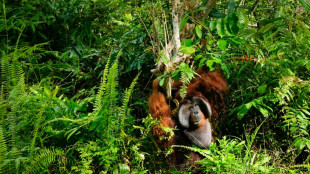
-
 Kneecap rapper faces court on terror charge over Hezbollah flag
Kneecap rapper faces court on terror charge over Hezbollah flag
-
Dutch divers still haul up debris six years after container spill

-
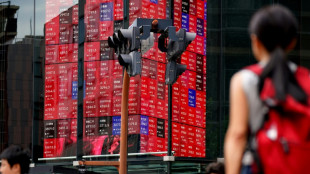 Asian markets dip after US tech slide
Asian markets dip after US tech slide
-
NZ soldier sentenced to two years' detention for attempted espionage

-
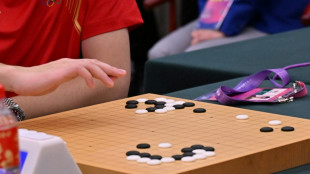 Time to Go: Japan pro board game player retires at 98
Time to Go: Japan pro board game player retires at 98
-
City girls snub traditional Hindu face tattoos in Pakistan
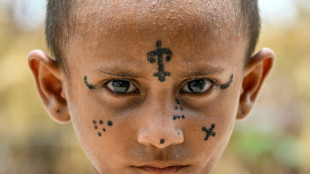
-
 Australia lashes Netanyahu over 'weak' leader outburst
Australia lashes Netanyahu over 'weak' leader outburst
-
Polar bear waltz: Fake Trump-Putin AI images shroud Ukraine peace effort

-
 Sounds serious: NYC noise pollution takes a toll
Sounds serious: NYC noise pollution takes a toll
-
Trump slams US museums for focus on 'how bad slavery was'

-
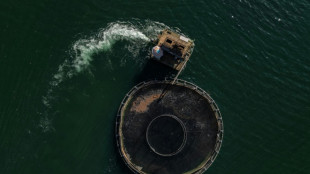 US agrees to talks with Brazilian WTO delegates on tariffs
US agrees to talks with Brazilian WTO delegates on tariffs
-
Israel-France row flares over Macron's move to recognise Palestinian state

-
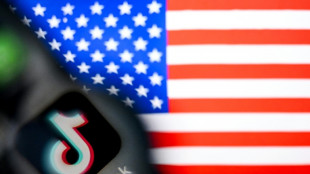 White House starts TikTok account as platform in US legal limbo
White House starts TikTok account as platform in US legal limbo
-
Syrian, Israeli diplomats met in Paris to discuss 'de-escalation': report

-
 Wanyonyi, the former cattle herder ready to eclipse Rudisha
Wanyonyi, the former cattle herder ready to eclipse Rudisha
-
Swiatek, Ruud romp into US Open mixed doubles semis, Alcaraz, Djokovic out

-
 Mbappe lifts Real Madrid past Osasuna in La Liga opener
Mbappe lifts Real Madrid past Osasuna in La Liga opener
-
Venezuela says 66 children 'kidnapped' by the United States

-
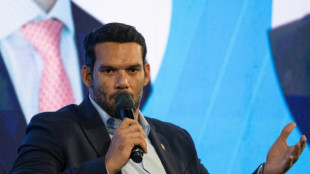 Brazil nixes red World Cup jersey amid political outcry
Brazil nixes red World Cup jersey amid political outcry
-
Real Madrid scrape past Osasuna in La Liga opener

-
 McIlroy backs 'clean slate' season finale format change
McIlroy backs 'clean slate' season finale format change
-
'Call of Duty', 'Black Myth' wow Gamescom trade show

-
 Isak says 'change' best for everyone after Newcastle trust broken
Isak says 'change' best for everyone after Newcastle trust broken
-
Salah makes history with third PFA player of the year award

-
 Rabiot, Rowe put up for sale by Marseille after bust-up
Rabiot, Rowe put up for sale by Marseille after bust-up
-
Weary Swiatek wins US Open mixed doubles opener

-
 Miami fearing Messi blow ahead of Leagues Cup quarter-finals
Miami fearing Messi blow ahead of Leagues Cup quarter-finals
-
Trump rules out US troops but eyes air power in Ukraine deal

-
 Trump course back on PGA schedule for 2026 season: tour
Trump course back on PGA schedule for 2026 season: tour
-
Mexican boxer Chavez Jr. deported from US over alleged cartel ties

-
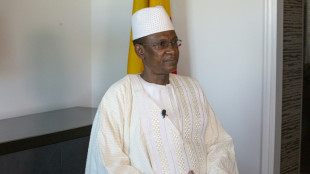 Former Mali PM Choguel Kokalla Maiga charged with embezzlement, imprisoned
Former Mali PM Choguel Kokalla Maiga charged with embezzlement, imprisoned
-
Sinner withdraws from US Open mixed doubles draw

-
 Mexican drug lord Zambada to plead guilty in US court
Mexican drug lord Zambada to plead guilty in US court
-
Russians welcome idea of Putin and Zelensky meeting

-
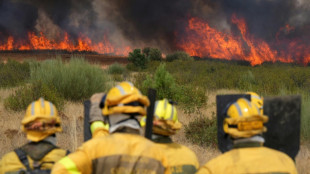 Spanish PM says 'difficult hours' left in wildfire fight
Spanish PM says 'difficult hours' left in wildfire fight
-
Ex-owner of world's largest rhino farm arrested for trafficking


Making connections in Myanmar's fractured state
In a riverine battleground in western Myanmar, an entrepreneur hunts for reception using a makeshift bamboo antenna, his payphone kiosk providing locals a lifeline to connect with their loved ones.
In commercial capital Yangon, a student flicks through apps that cloak his online identity so he can skirt social media bans that accompanied the 2021 coup.
And in the mountainous east, customers at an internet cafe feverishly scroll for news from the outside, dependent on Elon Musk-owned satellites.
Four years of civil war between Myanmar's military and its myriad opponents have shattered communications networks.
In response, people have resorted to methods ranging from the old-fashioned to the ingenious to the hyper-modern.
"I don't want to be cut off from the world," Hnin Sandar Soe, 20, said at an internet cafe in eastern Karenni state where she reads headlines, studies online and reaches out to friends and family.
"It always brings a warm and comforting feeling to keep in touch with them."
- Payphone lifeline -
Myanmar has been under military rule for most of its post-independence history, but a decade-long democratic thaw starting in 2010 was accompanied by an astronomical growth in connectivity.
That year, SIM cards cost $1,000 and fewer than five percent of the population owned a mobile phone, according to World Bank figures.
Seven years later, that figure was 82 percent, as citizens seized on the rapidly developing cellular networks and novelty of free speech.
But since the military toppled the civilian government and ignited the war, there has been a slide back into digital darkness.
The junta has banned a slew of apps, conflict has eviscerated infrastructure and blackouts are weaponised by all sides.
In western Rakhine state, where civil war has intensified long-running conflict, reliable communications are now a dim memory.
Witnessing his neighbours hiking hills for mobile signal, Saw Thein Maung founded an old-fashioned payphone business six months ago.
Today, he operates three phones wired to antennas on 10-metre (33-foot) poles that wobble in the wind above the delta town of Ponnagyun.
The business earns him a relative fortune of up to $23 a day as customers clamour to dial out.
"They don't want to stop speaking with their children elsewhere. They don't care how much they have to pay," Saw Thein Maung said.
Customer Tun Lin, 27, uses the payphone to ring city-dwelling contacts to enquire about job openings.
"Making phone calls is the only way," the unemployed former NGO worker said.
- Satellite solutions -
Activist group the Myanmar Internet Project (MIP) says there have been nearly 400 regional internet shutdowns since the junta takeover.
What it calls a "digital coup" has slowed emergency responses, hampered education and hobbled the economy.
"The public is experiencing hardship as a result of this insult added to injury," said MIP spokesman Han, who goes by one name. "They are looking for all kinds of ways to resist."
In Karenni state, an internet cafe with a glowing blue router offers an oasis of connectivity, bypassing restrictions by tethering to Musk's Starlink satellite system.
The junta has not licensed the technology, meaning it is illegal to operate.
Cafe owner Marino had it smuggled over the border to his shop, where the cutting-edge web link contrasts with the corrugated roof and tarpaulin walls.
"We need the internet to know what is happening in our country or the world and if our friends are doing well or not," he said.
Nearby, an elderly woman chatted on her phone and a gaggle of teens played online games.
- Dodging disconnection -
Major cities under junta control retain reliable internet, but Facebook, Instagram, X and WhatsApp -- where opposition groups have typically organised -- are all banned.
In Yangon, virtual private networks (VPNs) provide a way to dodge the bans.
After the junta started blocking VPNs last year, a whisper network rippled through the city, with people sharing free options that still function.
One week the best is 1.1.1.1, before JumpJumpVPN emerges as more popular, and then everyone moves to Now VPN.
But the junta security forces now conduct spot checks for VPNs, said one 23-year-old student, speaking on condition of anonymity because he uses the outlawed apps.
"Other countries have internet freedom and young people can learn freely," he said. "It is different in our country where everything is restricted. I feel our rights are blocked."
He remains undeterred. "We young people have a mindset that we will overcome any restrictions."
J.AbuHassan--SF-PST
